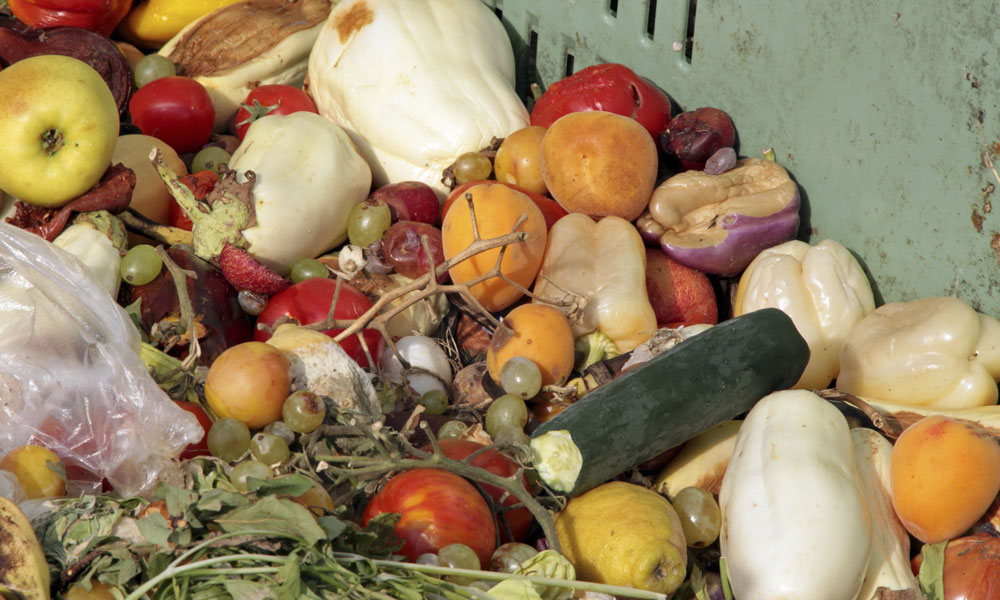
Starting a Trend? French Retailers Take Stand on Food Waste
With legislative pressure ramping up in France, several of the country's retailers said last week that they would voluntarily donate leftover food to charity. Although the strategy could pick up steam in Europe, American groups remain focused on their own initiatives to curb food waste.
Last week, French grocery stores put up a united front on the issue of food waste, possibly avoiding a mandate from lawmakers. It’s a development that other countries may want to monitor.
A number of French retailers announced that they would voluntarily donate unused food to charities as an alternative to a food waste measure that had nearly become French law. The country’s Constitutional Council cut the amendment from an energy bill after determining that it had not been properly included. (However, legislators are discussing whether to introduce a replacement bill.)
The move came roughly three months after the issue first arose in the French parliament. For its part, the French Federation of Commerce and Distribution (FCD) says its members have already been working toward solutions.
“We are already very involved in the anti-waste struggle. All our big retailers give to charity. In fact, our activity generates a small amount of waste,” said Mathieu Pecqueur, the group’s director of agriculture and quality, according to Food Navigator.
France’s food charity groups—which already collect more than 35 percent of their donations from supermarkets, according to MyTF1 [story in French]—say they look forward to the potential windfall but are concerned that the new donations could be too much for them to handle.
“Our food banks are going to need more staff, more lorries, more refrigerated rooms. But to get all that, we will need money—and money is pretty scarce these days,” French Federation of Food Banks President Jacques Bailet told the BBC prior to last week’s announcement.
Could the strategy spread?
Already there are questions about whether this strategy to reduce food waste will translate across borders. Arash Derambarsh, the Paris city council member who first drew attention to the issue, told the BBC that he plans to expand his campaign to the rest of Europe with the help of an online petition.
Pressure is building in the United Kingdom, due in part to recent research that found that 80 percent of the country’s food waste is “avoidable.” The British Retail Consortium says it would oppose a similar plan in the U.K.
“The original French proposal, whilst an interesting debate, was quite frankly a distraction from the bigger targets of food reduction,” BRC Director of Food and Sustainability Andrew Opie told Food Navigator.
U.S. Efforts Stay Steady
Thus far, American food manufacturers and retailers have not faced similar pressure to curb food waste (although a popular John Oliver clip released in July took direct aim at the issue). Part of the reason might be that the U.S. food industry has been proactive in addressing food waste.
Last year, the Food Waste Reduction Alliance—a joint initiative of the Food Marketing Institute, the Grocery Manufacturers Association (GMA), and the National Restaurant Association—released a report showing that more than 93 percent of all food waste created in manufacturing is recycled, much of it as animal feed.
However, the industry does face challenges on other fronts. Grocery stores and restaurants say that logistical and liability issues impede the donation of usable leftover food. In a 2013 study by the alliance [PDF], 67 percent of retail and wholesale respondents cited liability concerns as a challenge.
Some of the strategies that the coalition is considering—such as changes in packaging to serve smaller families or to keep food fresh longer—may offer useful solutions but may also struggle to win over consumers and stakeholders.
“I want to take the time to … make sure we get it right,” GMA Senior Director of Sustainability Meghan Stasz told Food Dive. “Because if we just change what is on our packaging and consumers are still confused, we have not helped the situation, right? So we want to get a better handle on consumer food waste data and also on consumer behavior and some of those issues.”
(iStock/Thinkstock)






Comments